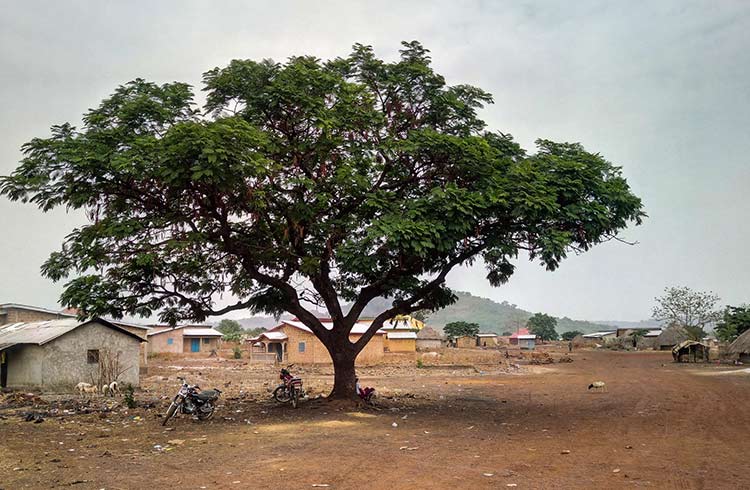What Travelers Need to Know About Politics in Guinea
What's the political situation in Guinea? Find out about politics and turmoil before you start planning your trip to this West African country.
 Photo © Getty Images/john images
Photo © Getty Images/john images
Guinea, officially known as the Republic of Guinea is a country in West Africa formerly known as French Guinea (Guinée française). It is sometimes called Guinea-Conakry to distinguish it from its neighbor Guinea Bissau.
Conakry is the largest city and national capital, with a population of 1.66 million.
Guinea covers an area of 94,925mi² (245,857km²), forming a rough crescent from its western border on the Atlantic Ocean curving towards the east and south. It shares its northern border with Guinea-Bissau, Senegal and Mali, and a southern border with Sierra Leone, Liberia and Cote d'Ivoire.
Occupation and independence
Until France colonized it in the 1890s, the land that is now Guinea belonged to a series of African empires. After gaining independence from France on the 2nd October 1958, Guinea experienced autocratic rule until October 2008, when a military junta seized control. In January 2010, the junta appointed a Prime Minister to head a six-month transitional government leading up to elections.
The first round of the presidential election held in June 2010 was billed as the first free and fair election since independence in 1958. Due to allegations of electoral fraud, the second round was postponed until September 2010, followed by a further two delays.
Finally, on the 7th November 2010, the second round of the presidential election was held. The election ran smoothly, voter turnout was high and when counting was completed on the 16th November 2010, Alpha Condé was declared the victor.
Ethnic diversity in Guinea
The 50 odd years of political turmoil and civil unrest in Guinea since independence in 1958 are compounded by Guinea's ethnic diversity.
There are about 24 distinct ethnic groups in Guinea of which the largest, alternately known as Fulas, Fulani or Peulh comprise 40% of the population. They are mainly found in the Futa Jallon region.
The second largest ethnic group, the Mandika, Mandingo or Malinke, comprise 25% of the population and are mostly found in the Kankan and Kissidougou prefectures of eastern Guinea.
The third largest ethnic group, the Soussou, comprise 10% of the population and are mainly found in the western regions in and around the capital, Conakry. The remaining 10% of the population includes the Kpelle, Kissi, Ziako, Toma and others, while the 10,000 odd non-Africans include Lebanese, French and other European nationals.
Immediately after the 2010 presidential elections, the nation was plagued by ethnic violence between supporters – often unemployed, disaffected youths – of the two major contenders. Shops were looted, houses and buildings damaged or destroyed and people seriously injured and killed. Many women were raped.
As a result of civil wars in Sierra Leone and Liberia in the early years of the new millennium, Guinea is hosting nearly one million refugees from Sierra Leone and Liberia alone. Another influx followed the 2002 conflict in Cote d'Ivoire. Such numbers of displaced persons is a tremendous burden on the host population. Gradually, they are spreading throughout the country.
On first entering Guinea, many refugees were concentrated in Nzérékoré, capital of the Nzérékoré Prefecture and the largest city in the Guinée Forestière region of south- eastern Guinea. The population of 107,329 according to the 1996 census rose to nearly 300,000 after the civil wars in Liberia and Cote d'Ivoire.
Government travel advisories say travelers should exercise increased caution throughout the country due to civil unrest, and specifically advise tourists to stay away from the southeastern border regions. It's worth noting issues in the south are the result of inter-ethnic rivalries, and rarely involve tourists.
Theft is rife in these forested border regions, so travelers should avoid remote locations where Guinean civil authorities exert little or no influence.
The large military presence in Conakry is both an inconvenience and a hidden blessing. On the one hand, one might resent the inconvenience of frequent roadblocks. On the other hand, the large military presence ensures that inter-ethnic tensions are held in check and foreign tourists are relatively undisturbed.
To avoid getting caught up in the crossfire resulting from inter-ethnic or political violence, keep away from large crowds at political rallies and street demonstrations.
Simple and flexible travel insurance
You can buy at home or while traveling, and claim online from anywhere in the world. With 150+ adventure activities covered and 24/7 emergency assistance.
Get a quote
No Comments